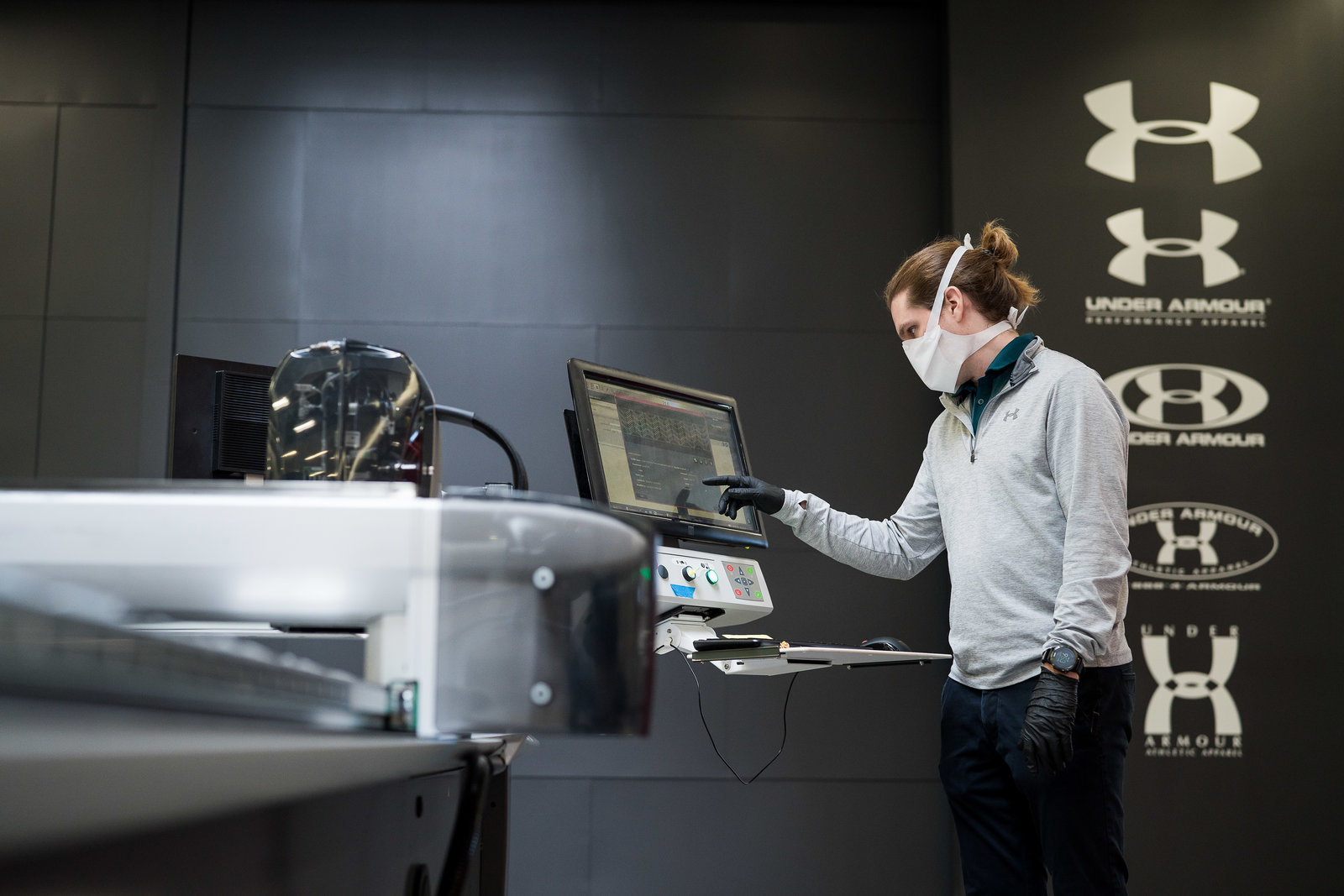Although Under Armour is already a household name across the world, recently the company has been in the spotlight more than usual. Baltimore-based Under Armour, owned by Kevin Plank, has donated food, medical equipment, and millions of dollars to the local community to help combat COVID-19. Sagamore Spirit, another of Plank’s companies, has joined the efforts as well, converting its state-of-the-art distillery into a facility for manufacturing hand sanitizer and donating the finished product.
Plank’s ties to Maryland run deep. He was born and raised in Kensington, about 40 minutes outside Baltimore. His mother was the first female mayor of Kensington and served four terms, and his father was a well-known land developer who worked throughout the state. When it came time for college, Plank chose the University of Maryland – College Park, where he played football.
After becoming frustrated by underperforming, sweat-soaked athletic wear during his football career, Plank founded Under Armour in 1996 with a single moisture-wicking shirt designed to wear under uniforms. He initially worked out of his grandmother’s basement and gave the shirts away for free to friends who had made it into the NFL. Today, Under Armour has corporate offices in more than 20 cities across the globe.
Thanks largely to his background and experiences as an athlete, Plank has always inherently been a team player. That has translated into a community-centered corporate culture and a strong sense of philanthropy in both of his companies. In keeping with that philosophy of giving back, Under Armour and Sagamore Spirit have both stepped up to the plate to leverage their resources and help their local communities in the midst of the COVID-19 pandemic.
UA: A model of corporate responsibility
In mid-March, Under Armour donated a substantial supply of fresh food to the Ronald McDonald House in Baltimore. That was followed up with a $1 million donation to Feeding America, specifically funneled to cities where the company has offices and team members. Then on March 23, the 30-day “Healthy at Home” fitness challenge was launched on MyFitnessPal and MapMyRun to encourage families to stay active. As part of the challenge, Under Armour pledged $1 million in product and monetary donations to Good Sports, a non-profit focused on ensuring youth athletic teams have necessary equipment.
Recognizing the unprecedented need for – and shortage of – personal protective equipment (PPE), Under Armour designed and began manufacturing one-piece face masks and shields that don’t require any sewing. By eliminating the need for sewing, the masks can be made much more quickly. The company delivered the first batch of 20,000 face masks to Johns Hopkins Health System in the first week of April, with a goal of ramping up to 100,000 masks per week and expanding to help other local medical organizations and public safety officers. Under Armour is also exploring manufacturing options for hospital gowns and 3-D printed N95 and N80 masks.
In the (Sagamore) spirit of giving
While Under Armour was in the news for its substantial efforts to aid in the fight against coronavirus, Johns Hopkins Health System was looking for solutions to make hand sanitizer onsite. The facilities weren’t properly outfitted to handle large amounts of flammable substances and they were running out of options, so they approached Sagamore Spirit, which sits on the 630-acre historic Sagamore Farm in Baltimore County. Within an hour of making the phone call, the collaboration was underway.
Although the team at Sagamore Spirit was eager to get to work, it wasn’t quite that easy. Specific ingredients like ethanol are required to make hand sanitizer, but it had become nearly impossible to find. Members of the Johns Hopkins team were tasked with sourcing the raw materials, while the crew at Sagamore Spirit set out to convert the facility’s distillation process. Instead of using rye whiskey mash, corn ethanol would be used to make the sanitizer. Once everything was in place, pharmacists from Johns Hopkins worked closely with Sagamore Spirit to get the compounding and disinfectant formula just right.
The first batches of hand sanitizer were delivered to Johns Hopkins Hospital on March 31st. They had to be put into 5-gallon jugs because there has been a global shortage of smaller plastic containers. Sagamore Spirit has committed to manufacturing at least 54,000 liters for Johns Hopkins Health System, but is in discussions with other Baltimore-area medical institutions about their needs as well. Ultimately, the company says it’s open to expanding to 100,000 liters a month for as long as there is a need and it’s open to helping outside of Maryland, too.
